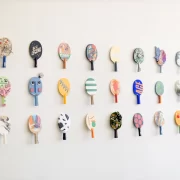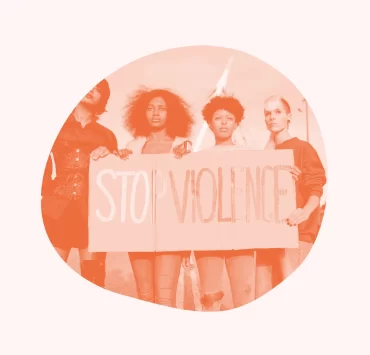Young women in Scotland are facing significant challenges when it comes to political engagement. According to the Young Women Lead 2024 report, fear, intimidation, and mistrust in political systems are acting as barriers to their participation. Issues like online echo chambers and misogynistic content make the political landscape more complex, discouraging young women from stepping into these spaces, despite their desire to create change.
Online echo chambers and misogyny
The report emphasises the dangers of online echo chambers, which limit exposure to diverse perspectives and reinforce existing biases. For young women, this can lead to isolation, as they find themselves trapped in spaces that perpetuate harmful societal standards. The algorithms that dominate social media platforms are also pushing misogynistic content, contributing to the rise of toxic communities like incel culture.
Research from King’s College London reveals that 21% of young men aged 16-29 view controversial figures like Andrew Tate favourably, with 30% believing that Tate raises “important points” about masculinity. This creates a stark contrast, as the majority of young women view such content as damaging, further alienating them from political discourse.
Fear and intimidation present major obstacles
Within the challenges of the digital world and public-facing platforms, fear and intimidation are major barriers that prevent young women from actively participating in politics. The report found that fear of public scrutiny and potential backlash—whether through online harassment or criticism—has become a significant deterrent. For many young women, the prospect of engaging in public discourse or taking on leadership roles in politics brings with it the risk of personal attacks, leaving them feeling exposed. The heightened pressure faced by those entering public life creates an environment where politics seems inaccessible and hostile, pushing many to disengage.
In a world where online platforms amplify voices but also expose individuals to harmful rhetoric, young women are often left weighing the risks of speaking out against the importance of having their voices heard. The report calls for creating safer, more inclusive spaces to ensure young women are empowered to step into these roles without fear.
Mental health and the strain of online activism
The report also addresses the mental health impacts of navigating these challenging online spaces. While social media offers opportunities for activism, it simultaneously exposes young women to harassment, especially those advocating for feminist or social justice causes. These online encounters discourage many from actively engaging, adding an additional barrier to young women’s political participation.
Generational disconnect and critical thinking gaps
The Young Women Lead 2024 report points to a disconnect between generations that affects political discourse. Young women often feel unheard or misunderstood by older generations, which further alienates them from engaging in politics. A lack of critical thinking and the suppression of young women’s voices—whether in educational or political spaces—adds to the feeling of being sidelined.
The report also notes that patriarchal norms in education contribute to this issue, as young women are frequently discouraged from asking questions or engaging in debates. These dynamics create significant barriers to developing and expressing political opinions.
Rebuilding trust and encouraging local participation
Trust in political systems remains low among young women, echoing findings from Carnegie UK’s 2023 report. 60% of Scots express distrust in the UK Government, and 39% feel similarly about the Scottish Government. For young women, this lack of trust exacerbates feelings of disempowerment when it comes to influencing political outcomes.
However, there is potential for more engagement at the local level. Rural areas, where politicians are more visible outside of election cycles, offer more opportunities for young women to connect with their representatives. In urban areas, despite better access to public transport and centralised political structures, young women still feel disconnected from the political process. The report stresses that rebuilding trust is essential for enhancing engagement.
Creating space for young women in politics
The Young Women Lead 2024 report underscores the urgent need to create safer, more inclusive spaces for young women in politics. Tackling online harassment, addressing the dangers of echo chambers, and rebuilding trust in political institutions are crucial steps for ensuring that young women feel empowered to engage. Programs like Young Women Lead are vital in fostering the next generation of leaders, but more needs to be done to break down the barriers preventing young women from stepping into political roles.
From improving digital literacy to bridging the generational divide, creating an environment where young women feel safe and heard is essential for their participation. Empowering young women in politics is not just about listening—it’s about taking concrete steps to make sure they are supported at every level.
You can read the full Young Women Lead 2024 report on The Young Women’s Movement website. If you’re interested in having your voice heard, take part in their latest research survey here to help shape the future for young women in Scotland.
Do you have a story to share? Reach out to Quine’s team at hello@quinemagazine.com.














